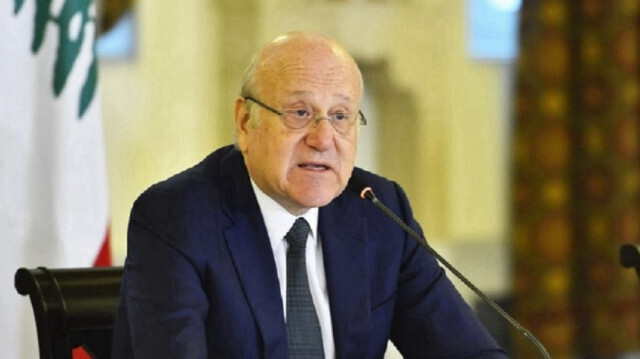
Mikati calls for Iranian envoy in Beirut to be summoned for clarification on implementation of UN Resolution 1701
Lebanese Prime Minister Najib Mikati condemned on Friday recent Iranian statements regarding Tehran's readiness to negotiate with France on implementing the UN Resolution 1701, characterizing the remarks as an unwarranted intervention in Lebanese affairs.
Mikati's statements come after comments made by Iranian Parliament Speaker Mohammad Bagher Ghalibaf, who suggested that Iran would be willing to engage in negotiations concerning the resolution.
In two separate statements, the Lebanese Prime Minister stated: “We are surprised by this position, which represents a blatant interference in Lebanese affairs and an attempt to establish unacceptable oversight over Lebanon.”
He emphasized that during the recent visits of Iranian Foreign Minister Abbas Araghchi and Ghalibaf to Lebanon, he stressed the need for understanding the Lebanese situation, especially given the unprecedented Israeli aggression against the country.
He asserted that “the negotiation regarding the implementation of UN Resolution 1701 is a matter for the Lebanese state to handle. Support for this direction is essential, rather than seeking to impose new, unacceptable oversight based on national and sovereign considerations.”
In an interview with the French newspaper Le Figaro late Thursday, Ghalibaf stated: “We believe that Iran would be prepared to negotiate effectively regarding the implementation of Resolution 1701 with France acting as an intermediary between Hezbollah and Israel.”
Following these developments, Mikati instructed Foreign Minister Abdullah Bou Habib to summon the Iranian chargé d'affaires, Tawfiq Samadi, to inquire about Ghalibaf's statements and to convey the Lebanese government's position on the matter.
UN Resolution 1701, adopted unanimously by the Security Council on Aug. 11, 2006, calls for a complete cessation of hostilities between Hezbollah and Israel and the establishment of a zone free of armed personnel and military equipment, except for those belonging to the Lebanese army and UN peacekeeping forces (UNIFIL).
Israel dramatically escalated its massive bombing campaign across Lebanon against what it claims are Hezbollah targets since Sept. 23, killing at least 1,437 people, injuring over 4,123 others, and displacing more than 1.34 million people.
The aerial campaign is an escalation from a year of cross-border warfare between Israel and Hezbollah since the start of its offensive on the Gaza Strip, in which Israel has killed over 42,400 people, most of them women and children, since a Hamas attack last year.
Despite international warnings that the Mideast was on the brink of a regional war amid Israel's relentless attacks on Gaza and Lebanon, it expanded the conflict on Oct. 1 by launching an incursion into southern Lebanon.

